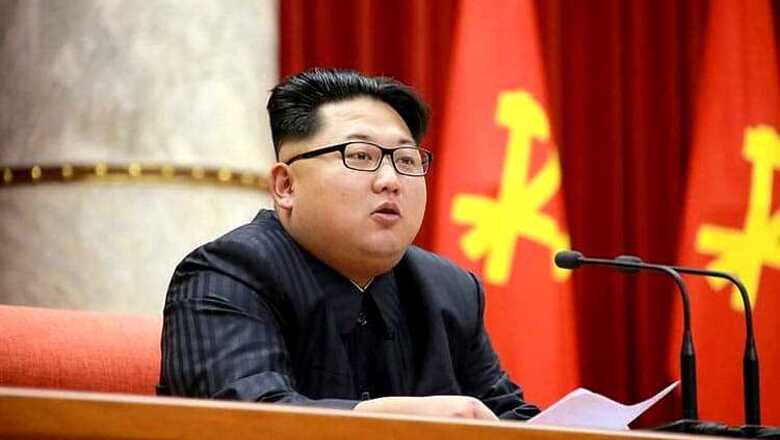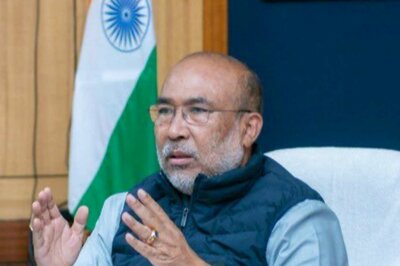
views
Seoul: North Korea announced on Wednesday it had successfully carried out its first hydrogen bomb test, a development that, if confirmed, would marking a stunning step forward in its nuclear development.
"The republic's first hydrogen bomb test has been successfully performed at 10:00am on January 6, 2016, based on the strategic determination of the Workers' Party," a state television news reader announced.
"With the perfect success of our historic H-bomb, we have joined the rank of advanced nuclear states," the announcer said, adding that the test was of a "miniaturised" device.
The surprise test was personally ordered by North Korean leader Kim Jong-Un and came just two days before his birthday. In December, during remarks made during an inspection tour, Kim had suggested Pyongyang had already developed a hydrogen bomb -- although the claim was greeted with scepticism by international experts.
A hydrogen, or thermonuclear device, uses fusion in a chain reaction that results in a far more powerful explosion. "The latest test, completely based on our technology and our manpower, confirmed that our newly-developed technological resources are accurate and scientifically demonstrated the impact of our miniaturised H-bomb," the TV announcer said.
The announcement will leave the international community scrambling to verify the accuracy of the North's claims. Most experts had assumed Pyongyang was years from developing a thermonuclear bomb, while assessments were divided on how far it had gone in mastering the technology to miniaturise a device that could fit on a ballistic missile.
While vowing to stick by a no-first use policy, Wednesday's statement said Pyongyang would continue to pursue an advanced nuclear strike capability.
"As long as the vicious anti-North policy of the US persists, we will never stop development of our nuclear programme," it said.
The three previous tests in 2006, 2009 and 2013 triggered waves of UN sanctions. Their failure to prevent a fourth detonation will place the Security Council under intense pressure to take more drastic action this time around.
It throws down a particular challenge to US President Barack Obama who, during a visit to South Korea in 2014, lashed North Korea as a "pariah state" and vowed sanctions with "more bite" if Pyongyang went ahead with another test.
The response of China, North Korea's economic and diplomatic patron, will be key. Beijing has restrained US-led allies from stronger action against Pyongyang in the past, but has shown increasing frustration with its refusal to suspend testing.
But China's leverage over Pyongyang is mitigated, analysts say, by its overriding fear of a North Korean collapse and the prospect of a reunified, US-allied Korea directly on its border.
China has been pushing for a resumption of six-party, aid-for-disarmament talks on North Korea, insisting that engagement with Pyongyang is the only way forward.
The six-party process, involving the two Koreas, the United States, China, Japan and Russia, has been in limbo since 2007 and Pyongyang's decision to move ahead with a fourth test has almost certainly hammered the final nail in its coffin.
After its last nuclear test in 2013, the North restarted a plutonium reactor that it had shut down at its Yongbyon complex in 2007 under an aid-for-disarmament accord.
The Yongbyon reactor is capable of producing six kilograms (13 pounds) of plutonium a year -- enough for one nuclear bomb.
Pyongyang is currently believed to have enough plutonium for as many as six bombs, after using part of its stock for at least two of its three atomic tests to date.
It is still unclear whether the 2013 test used plutonium or uranium as its fissile material.



















Comments
0 comment